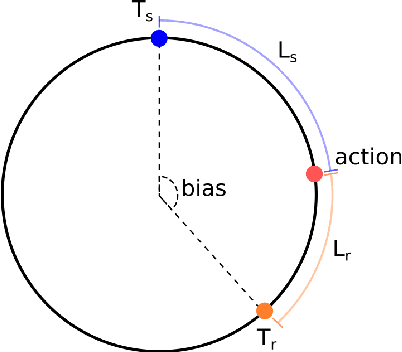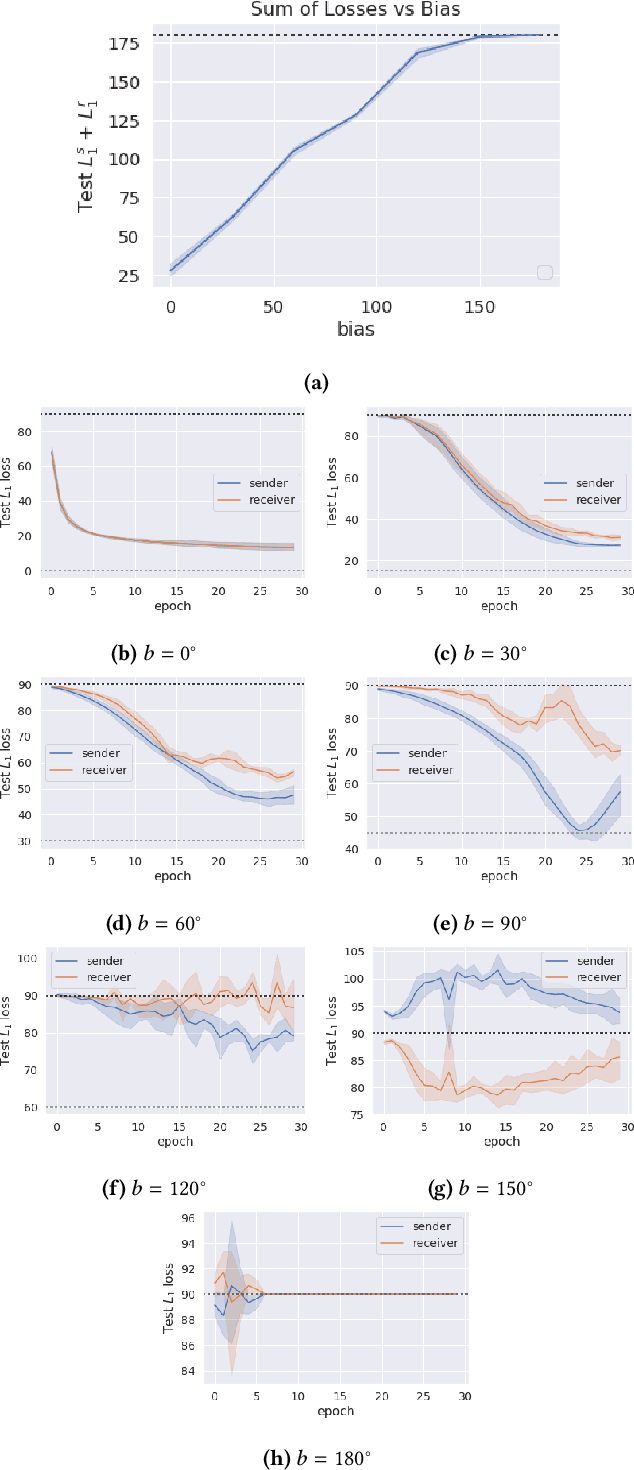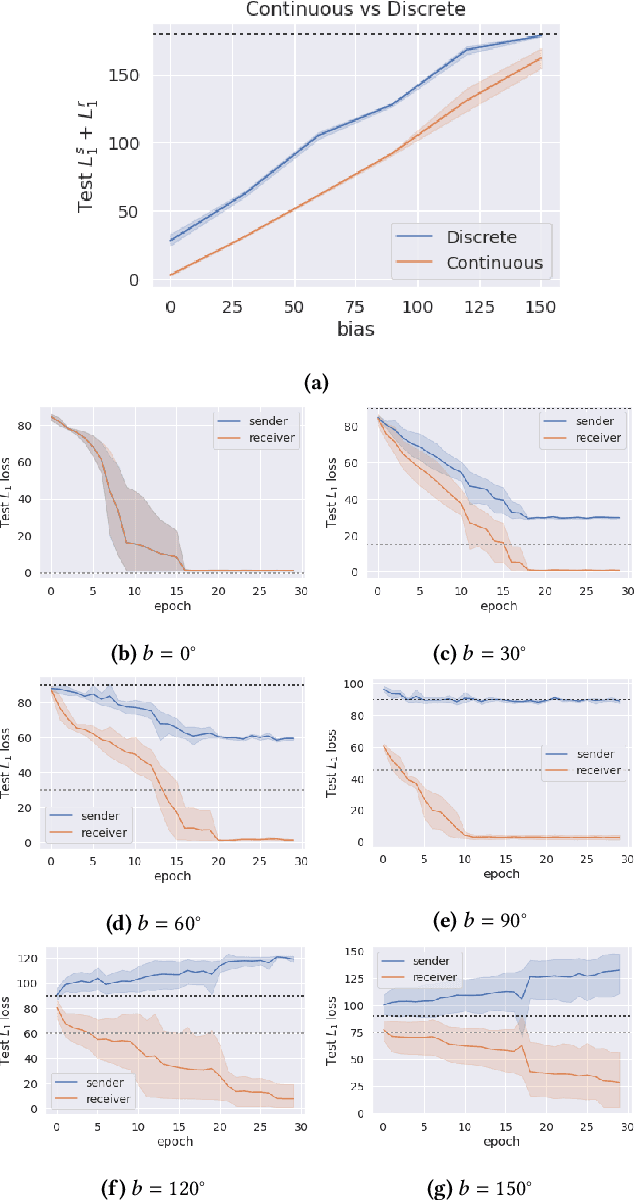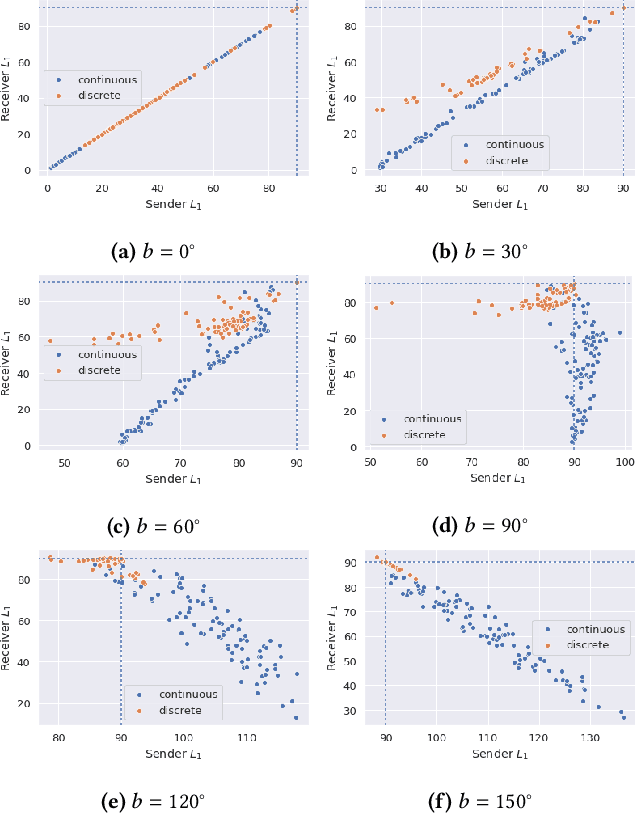Emergent Communication under Competition
Paper and Code
Jan 25, 2021



The literature in modern machine learning has only negative results for learning to communicate between competitive agents using standard RL. We introduce a modified sender-receiver game to study the spectrum of partially-competitive scenarios and show communication can indeed emerge in a competitive setting. We empirically demonstrate three key takeaways for future research. First, we show that communication is proportional to cooperation, and it can occur for partially competitive scenarios using standard learning algorithms. Second, we highlight the difference between communication and manipulation and extend previous metrics of communication to the competitive case. Third, we investigate the negotiation game where previous work failed to learn communication between independent agents (Cao et al., 2018). We show that, in this setting, both agents must benefit from communication for it to emerge; and, with a slight modification to the game, we demonstrate successful communication between competitive agents. We hope this work overturns misconceptions and inspires more research in competitive emergent communication.
 Add to Chrome
Add to Chrome Add to Firefox
Add to Firefox Add to Edge
Add to Edge